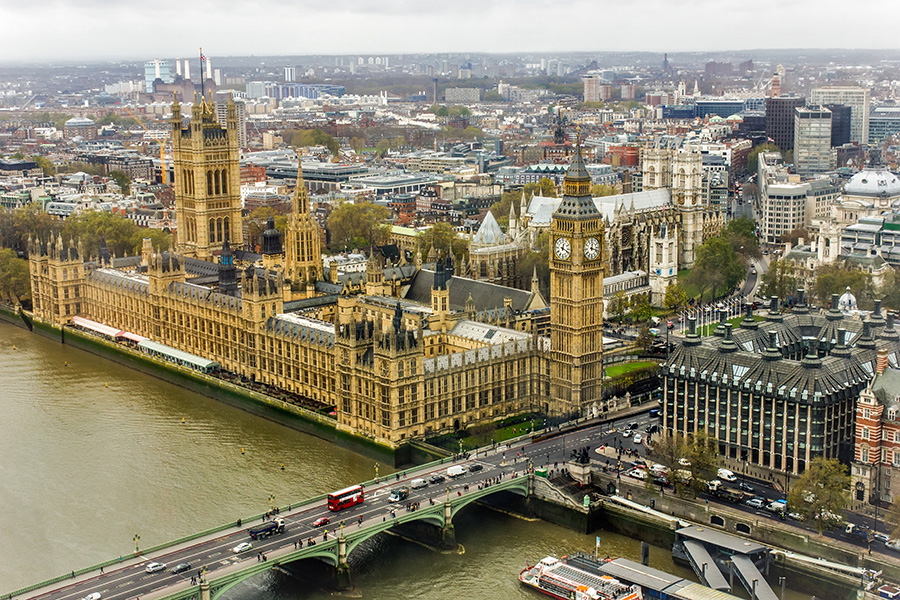New details of UK gambling white paper emerge

Industry commentators Earnings + More claim to have received leaked details of Britain’s proposed changes to gambling legislation.
UK.- Passive affordability checks on losses of £125 a month, a default stake limit of £2 to £5 per spin for online slots and a ban on online VIP schemes. These are some of the measures to be included in the UK gambling white paper, according to the latest leaked information.
Industry commentators Earnings + More claim to have received details of the proposed new gambling legislation from reliable sources. Part of what they report certainly matches previous rumours, so it seems fairly convincing, although they note that discussions between the DCMS and the Gambling Commission are ongoing.
Stake limits for online casino
We had already heard that the government planned to propose stake limits of between £2 and £5 for online slots. This was one widely expected result of the review of gambling legislation since it would bring online slots in line with land-based FOBTs, which have a £2 stake limit.
However, the latest leak suggests that this would be a “smart stake limit“. The default stake limit would be set at £2 to £5, but customers who so wish could request to go through enhanced checks in order to raise that limit to something between £10 to £25.
It appears that the intention is to decide the exact figure after a consultation in autumn. There would be no stake limits on betting or other types of casino games.
Affordability checks
One more surprising suggestion is that affordability checks will kick in at a loss of £125 a month or £500 a year. The Gambling Commission had previously put forward a loss limit of £100 for affordability checks, and the proposal was generally criticised as being overly restrictive.
However, under the new proposals, these initial checks would be passive and automatic, with the customer not noticing them. They would include automatic checks for signs of financial distress such as county court judgements, with the complete details to be figured out by the Gambling Commission in an imminent consultation.
More detailed checks on a customer’s finances would reportedly be required in cases where a player loses £1,000 in a 24-hour period or £2,000 within 90 days (or £500 in losses in 24 hours for the new accounts in their first month). The intention is that these checks would also be “largely frictionless for customers”, initially being conducted online via credit reference agencies and open banking.
Information would only be requested from customers themselves when necessary to complete an assessment. However, the government and the Gambling Commission will also reportedly explore the possibility of mandatory deposit limits online.
Promotions
One of the other areas that has been contentious for the industry has been a call from campaigners to ban free bets. According to Earnings + More, the white paper will propose a ban on online VIP schemes. It will not ban free bets completely but will ban the targeting of free bets and other bonuses based on a customers’ spend or losses.
As for advertising, it’s already been reported elsewhere that the Premier League is hoping to avoid a complete ban on gambling sponsorship by reaching a voluntary agreement to phase out front-of-shirt placement for gambling operators.
Land-based casinos
Small casinos licensed under the 1968 Gambling Act (around 70 of the 1968 Act casinos) will be eligible for the same gaming machine allowance as larger venues. Land-based casinos will also be able to offer sports betting, but it’s not yet clear if this will apply to all casinos or only larger casinos licensed under the 2005 Gambling Act.
Casinos in London’s Mayfair district will reportedly be allowed to offer credit to international customers after “stringent checks” and may be able to introduce machines with higher limits on stakes and winnings.
The Gambling Commission
It’s suggested that the Gambling Commission will be given the power to set its own fees, with fees almost certain to rise. The regulator will also get the power to require bulk data from online operators.
It also appears that finally a levy for research, prevention and treatment (RET) funding will go ahead, to be set at 1 per cent of GGY for online operators. This will be paid directly to the Gambling Commission under the DCMS’s “strategic direction”.
A consultation in autumn will look into the creation of a gambling ombudsman to resolve complaints from customers against operators.
It appears that there will not be a licensing regime for online affiliates nor will white label arrangements face new legislation. However, Earnings + More’s sources say that, despite claims that the white paper is finished, the government and the Gambling Commission are still discussing much of the detail and that a second draft is believed to be in circulation.
There is still no clear timeline for when the paper will be published. The government has said it will be published “in the coming weeks”, but it’s been saying that for months, and matters have been delayed further by the resignation of Chris Philp and the handing of responsibility for the review to Damian Collins, the new parliamentary under-secretary of state for online safety.











